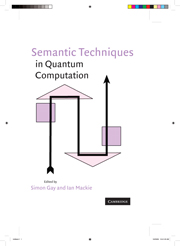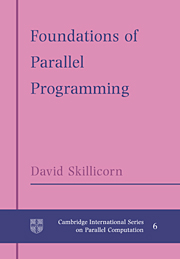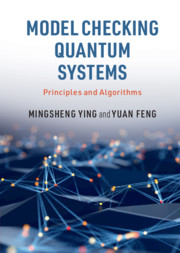Semantic Techniques in Quantum Computation
The study of computational processes based on the laws of quantum mechanics has led to the discovery of new algorithms, cryptographic techniques, and communication primitives. This book explores quantum computation from the perspective of the branch of theoretical computer science known as semantics, as an alternative to the more well-known studies of algorithmics, complexity theory, and information theory. It collects chapters from leading researchers in the field, discussing the theory of quantum programming languages, logics and tools for reasoning about quantum systems, and novel approaches to the foundations of quantum mechanics. This book is suitable for graduate students and researchers in quantum information and computation, as well as those in semantics, who want to learn about a new field arising from the application of semantic techniques to quantum information and computation.
- A collection of chapters by leading researchers
- Applies techniques from semantics rather than information theory or complexity theory
- Offers an overview of topical research in an exciting new field
Product details
February 2010Hardback
9780521513746
492 pages
242 × 160 × 30 mm
0.8kg
161 b/w illus. 27 tables
Available
Table of Contents
- 1. No-cloning in categorical quantum mechanics Samson Abramsky
- 2. Classical and quantum structuralism Bob Coecke, Eric Oliver Paquette, and Dusko Pavlovic
- 3. Generalized proof-nets for compact categories with biproducts Ross Duncan
- 4. The structure of partial isometries Peter Hines and Sam Braunstein
- 5. Extended measurement calculus Vincent Danos, Elham Kashefi, Prakash Panangaden, and Simon Perdrix
- 6. Abstract interpretation techniques for quantum computation Philippe Jorrand and Simon Perdrix
- 7. Predicate transformer semantics of quantum programs Mingsheng Ying, Yuan Feng, Runyao Duan, and Zhengfeng Ji
- 8. The quantum io monad Thorsten Altenkirch and Alexander Green
- 9. Quantum lambda calculus Peter Selinger and Benoıt Valiron
- 10. Temporal logics for reasoning about quantum systems Paulo Mateus, Jaime Ramos, Amılcar Sernadas, and Cristina Sernadas
- 11. Specification and verification of quantum protocols Simon Gay, Rajagopal Nagarajan, and Nick Papanikolaou.




